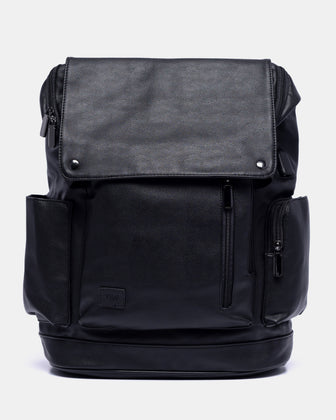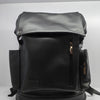

A Black-owned business is defined as a company in which at least 51% of ownership and control belong to Black individuals. It serves as a pillar for economic empowerment, representation, and wealth creation within Black communities.
From the Golden Age of Black Business in the early 20th century to the modern push for supporting Black-owned businesses, Black entrepreneurs have continuously overcome challenges to build thriving fashion, travel, and technology enterprises.
But what truly defines a Black-owned business beyond ownership? How can companies gain recognition and certification? And why does targeting Black-owned brands matter for economic equity? Keep reading as we explore the history, impact, and steps to identifying and supporting Black-owned businesses, including how brands like T|W Tote lead the way in the Black-owned travel bags market.
Black-owned businesses have at least 51% Black ownership.
True Black ownership also includes having control and leadership within the business.
Certification helps Black-owned businesses gain visibility and access new opportunities.
Table of content
1. Ownership and Leadership: Who Controls the Black-Owned Business?
For a company to be considered Black-owned, at least 51% of its ownership and operational control must be in the hands of Black entrepreneurs. However, true Black ownership extends beyond financial stakes, including leadership, decision-making, and business strategy. A Black-owned company should be Black-led, ensuring ownership reflects who runs the business.
Historically, Black entrepreneurs have demonstrated strong leadership, from the Golden Age of Black Business to today’s growing Black-owned enterprises. But how can a business confirm its Black-owned status, and why does leadership matter?
Why Leadership Matters in Black-Owned Businesses
While ownership is critical, leadership is equally important in Black-owned businesses. A brand may have Black stakeholders, but if non-Black executives hold decision-making power, it does not fully align with the spirit of Black entrepreneurship.
Supporting Black-owned businesses means ensuring that Black entrepreneurs own their companies and control operations, branding, and long-term business strategies.
In industries like fashion and travel, Black-owned travel bags are making an impact by providing consumers with high-quality, culturally inspired products that challenge industry norms.
True Black ownership includes having control and leadership within the business.
2. Certification: How to Get Officially Recognized as a Black-Owned Business
Certification is one of the most effective ways for Black-owned businesses to gain visibility, credibility, and access to economic opportunities. As the marketplace increasingly prioritizes supplier diversity, certifications help ensure that Black entrepreneurs are recognized, supported, and connected to the right resources. For those asking how to get certified as a Black-owned business, the process involves more than paperwork—it’s about unlocking access to contracts, funding, and platforms that elevate Black-owned brands across industries.
Top Certifications for Black-Owned Businesses
1. NMSDC (National Minority Supplier Development Council)
The NMSDC is one of the most widely recognized organizations certifying minority-owned businesses in the U.S. To qualify, a business must be at least 51% owned, operated, and controlled by minority individuals, including African Americans.
Benefits of NMSDC certification:
Access to Fortune 500 supplier diversity programs
Inclusion in a national database of certified suppliers
Business development and networking opportunities
Enhanced credibility in both public and private sectors
2. ByBlack (U.S. Black Chambers, Inc.)
ByBlack is the first national Black-owned business directory and certification platform approved by the U.S. Chamber of Commerce. It allows businesses to promote themselves officially as Black-owned and helps consumers and companies confidently target Black-owned brands.
3. SBA 8(a) Business Development Program
While not specifically for Black-owned businesses, the SBA 8(a) program supports disadvantaged small business owners, many of whom are Black entrepreneurs. The program offers:
Sole-source federal contracts
Business mentorship and training
Assistance with navigating government procurement
How to Get Certified as a Black-Owned Business
Gaining official recognition as a Black-owned business can open doors to new opportunities. The general steps for obtaining certification from organizations like NMSDC or ByBlack include:
Meet the 51% Ownership Requirement
Ensure your business is at least 51% owned, operated, and controlled by Black individuals.
Gather Required Documents
You’ll need to submit legal documents such as:
Articles of incorporation or formation
Business licenses
Proof of identity (driver’s license, passport)
Financial records (tax returns, profit and loss statements)
Undergo a Site Visit and Interview
Certifying bodies often conduct site visits and business reviews to verify ownership, operations, and leadership.
Pay a Certification Fee
While some programs (like ByBlack) offer free certification, others (like NMSDC) may charge based on your business size and location.
Why Certification Matters for Black-Owned Businesses
Certification is more than just a badge—it’s a gateway to opportunity. For Black-owned businesses, it:
Builds credibility with corporate partners and government agencies
It opens doors to contracts, grants, and capital
Provides visibility through supplier directories and diversity initiatives
Encourages customers to support Black-owned businesses confidently
In industries like fashion, lifestyle, and travel, certification helps Black-owned brands gain market recognition and corporate interest. For instance, brands like T|W Tote are NMSDC-certified and use their certification to access new markets while continuing the legacy of excellence rooted in the Golden Age of Black Business.
Certifications help ensure Black entrepreneurs are recognized, supported, and connected to the right resources.
3. Community Impact: Do Black-Owned Businesses Invest in the Black Community?
One of the most potent aspects of Black-owned businesses is their deep-rooted commitment to reinvesting in their communities. From creating jobs and mentoring youth to funding schools, non-profits, and local events, many Black-owned businesses operate with a mission far beyond profit. Their impact reflects a long-standing tradition of mutual aid and economic solidarity that dates back to what was the Golden Age of Black Business in the early 20th century when thriving Black business districts—like Tulsa’s Greenwood District (also known as Black Wall Street)—sustained entire communities through commerce and collaboration.
Economic Empowerment Through Ownership
When consumers support Black-owned businesses, they’re not just buying products or services but contributing to a cycle of economic equity and community development. Black entrepreneurs are likelier to hire Black employees, support Black-led organizations, and mentor other emerging Black business owners. These actions create generational impact by:
Reducing unemployment rates in Black communities
Increasing access to wealth-building opportunities
Encouraging youth entrepreneurship and financial literacy
The Role of Black Business Month
Black Business Month, observed every August, is a national celebration that spotlights the contributions of Black entrepreneurs. It encourages consumers, corporations, and policymakers to target Black-owned brands, invest in their growth, and acknowledge the unique challenges they face—such as limited access to capital and systemic barriers to scale.
During this time, campaigns and directories promote everything from Black-owned bag brands to tech startups, making it easier for consumers to discover and support diverse businesses. It's a reminder that supporting Black-owned businesses is a year-round responsibility with long-term social and economic rewards.
The success of Black-owned businesses is directly linked to the health of Black communities. A strong business ecosystem that recycles dollars locally and supports community initiatives builds resilience against economic shocks and systemic inequality. That’s why every time a consumer chooses to support a Black-owned business, they’re helping to fund more than just a product—they’re investing in progress.

4. Branding and Cultural Representation: Is the Business Proudly Black-Owned?
A hallmark of many Black-owned businesses is their pride in representing Black culture through branding, storytelling, and product design. This cultural representation is not just about aesthetics—it's a powerful tool for identity, legacy, and empowerment. From the language used in marketing campaigns to intentionally using color, materials, and design elements, Black-owned brands often carry deep roots in heritage, history, and the lived Black experience.
During the Golden Age of Black Business, entrepreneurs weren’t just building businesses—they were creating institutions that reflected their communities' excellence, pride, and resilience. That legacy continues today as modern-day Black-owned businesses bring that exact authenticity to contemporary markets.
Cultural Storytelling in Black-Owned Branding
Authentic branding goes beyond logos and taglines—it tells a story. Many Black-owned bag brands and fashion houses incorporate African prints, historical symbolism, and messages of unity and empowerment into their collections. These businesses serve as cultural ambassadors, offering products that celebrate Black identity while challenging mainstream narratives.
Consumers who want to target Black-owned brands should look for companies that intentionally celebrate their roots. These brands don't shy away from their Black ownership—instead, they wear it with pride, making it part of the customer experience.
For example, T|W Tote, a Black-owned travel bag brand, is a shining example of how branding and cultural authenticity coexist with luxury and functionality. T|W Tote creates premium Black-owned travel bags that reflect a sophisticated yet soulful design ethos. Every tote is made with high-quality, cruelty-free materials, and the brand takes pride in its commitment to sustainability and cultural storytelling.
When Black-owned businesses center their culture in their branding, they preserve heritage and create space for Black narratives in industries where they've often been excluded. This level of representation increases consumer trust, attracts new markets, and fuels long-term growth.
Every time you support a brand showcasing Black identity, you participate in a broader economic and cultural empowerment movement.
T|W Tote creates premium Black-owned travel bags that reflect a sophisticated yet soulful design ethos.
5. Visibility and Recognition: Where to Find Black-Owned Businesses?
The visibility of Black-owned businesses has grown significantly in recent years, thanks to a surge in public support, dedicated platforms, and corporate commitments to supplier diversity. However, the question remains: Where can consumers and corporations quickly discover and target Black-owned brands?
Finding and supporting Black-owned businesses has become easier than ever, especially as digital platforms and retailers respond to growing demand for equity and representation in commerce. As a result, brands—from skincare and tech to Black-owned bag brands and travel goods—are gaining the spotlight they deserve.
Online Directories Featuring Black-Owned Brands
Several websites and platforms have emerged to help consumers intentionally shop and support Black-owned businesses. These directories often include product categories, certifications, and customer reviews:
ByBlack.us—Powered by the U.S. Black Chambers, this is the first national, certified Black-owned business directory. It helps shoppers and corporations verify and support truly Black-owned businesses.
Official Black Wall Street – A digital directory inspired by the Golden Age of Black Business. It features thousands of businesses and includes location-based searches.
WeBuyBlack.com – A marketplace solely for Black-owned brands, where consumers can shop everything from apparel to home goods.
Support Black Owned (SBO) – An online database that organizes businesses by industry and state.
These platforms help consumers shop with intention and empower business owners to grow their customer base and build community visibility.
Retail and Corporate Support for Black-Owned Businesses
In response to calls for racial equity, major retailers are prioritizing partnerships with Black-owned businesses. Companies like Target, Nordstrom, Sephora, and Ulta now offer curated sections that specifically target Black-owned brands, often labeled in stores and online.
This shift offers brands—especially Black-owned travel bags and fashion labels—a seat at the retail table, expanding their reach to millions of potential customers. By using directories, supporting certified businesses, and exploring curated retail collections, you’re helping build a more inclusive and equitable economy.

Supporting Black-owned businesses promotes economic equity and cultural preservation.
Conclusion
Supporting and growing Black-owned businesses is more than a trend—it's a strategic investment in economic equity, cultural preservation, and generational wealth-building. Black-owned businesses have long been pillars of community development and resilience. Consumers today have countless opportunities to make a tangible impact by intentionally supporting Black-owned businesses through everyday purchases, spreading awareness, or using directories and platforms that target Black-owned brands. Events like Black Business Month help amplify these efforts, but progress comes from sustained support all year. Whether you're exploring Black-owned tech startups, fashion labels, or Black-owned bag brands, your spending power can help shape a more inclusive economy.
Black-owned businesses play a vital role in community development and resilience.
Online platforms make it easier to find and support Black-owned businesses.
Everyday purchases and awareness help grow Black-owned brands.
FAQs
What if a business is co-owned? Is it still considered "Black-owned"?
Definitions can vary. Some may consider a business Black-owned if a significant portion of ownership (e.g., 51% or more) is held by Black individuals. Others might have a broader definition. The specific context and the individual's perspective can influence this.
Is there a central registry of Black-owned businesses?
There isn't one single, universally recognized official registry. However, various organizations, online directories, and community groups maintain lists and databases of Black-owned businesses. The accuracy and comprehensiveness of these resources can vary.
What kind of certifications or affiliations might indicate a business is Black-owned?
Look for certifications from organizations like the National Minority Supplier Development Council (NMSDC), which certifies minority-owned businesses (including Black-owned). Affiliations with Black professional organizations, business associations, or community groups can also be indicators.











